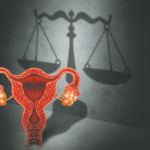You both are indicted and await trial. Are you now part of the new world of the criminalization of medical care?15 You reflect on how you have spent your entire career in medicine treating all those in need, regardless of their economic circumstances. This has been your calling. Your obstetrical colleague has been known to prescribe misoprostol and mifepristone for first trimester abortions, consistent with sound medical practice. But the state has taken steps to restrict access to these life-saving medications.
The pharmacist who refused to fill your order for methotrexate for your patient aided the state in its effort to restrict access to medication by demanding written details about the patient beyond that routinely and legally required to fill a prescription. Aside from violating a federal law (i.e., the Health Insurance Portability and Accountability Act of 1996 [HIPAA]), which protects a patient’s privacy, collection of protected medical information created a paper trail the state and others could follow, leading from you and your patient to the pharmacy, then to the healthcare insurer and even to the patient’s employer.16 This invasion of the patient’s privacy and coercion of the physician is justified in Texas because the state has determined it owns, and therefore can make decisions pertaining to, a woman’s body.
This invasion of the patient’s privacy & coercion of the physician is justified in Texas because the state has determined it owns, & therefore can make decisions pertaining to, a woman’s body.
On July 14, the Office for Civil Rights in the U.S. Dept. of Health & Human Services issued guidance that unequivocally stated that discrimination against a pregnant person, including denial of medication, is neither justified nor allowed under federal law: “Pharmacies … may not discriminate … with regard to supplying medications; making determinations regarding the suitability of a prescribed medication for a patient. … As recipients of federal financial assistance, … pharmacies are prohibited from discriminating on the basis of race, color, national origin, sex, age, and disability … under a range of federal civil rights laws. Under federal civil rights law, pregnancy discrimination includes discrimination based on current pregnancy, past pregnancy, potential or intended pregnancy, and medical conditions related to pregnancy or childbirth.”17
Personhood
You realize you now live in a new world in which a patient with diabetes, autoimmune disease, cancer, mobility problems or neuropsychiatric issues is of no concern to a state ranking 48 out of 51 on healthcare access and quality, service use and cost, health disparities, and health outcomes.18 And your obstetrical colleague reflects how this state has little interest in the pregnant woman’s suffering: potential pain, ectopic pregnancy, fetal chromosomal abnormalities, placenta previa and increased necessity for Caesarean deliveries. The state, which ranks as the fifth worst in the nation for children, is concerned about the concept of fetal personhood, overruling concern for the rights and needs of mothers and children.19,20


